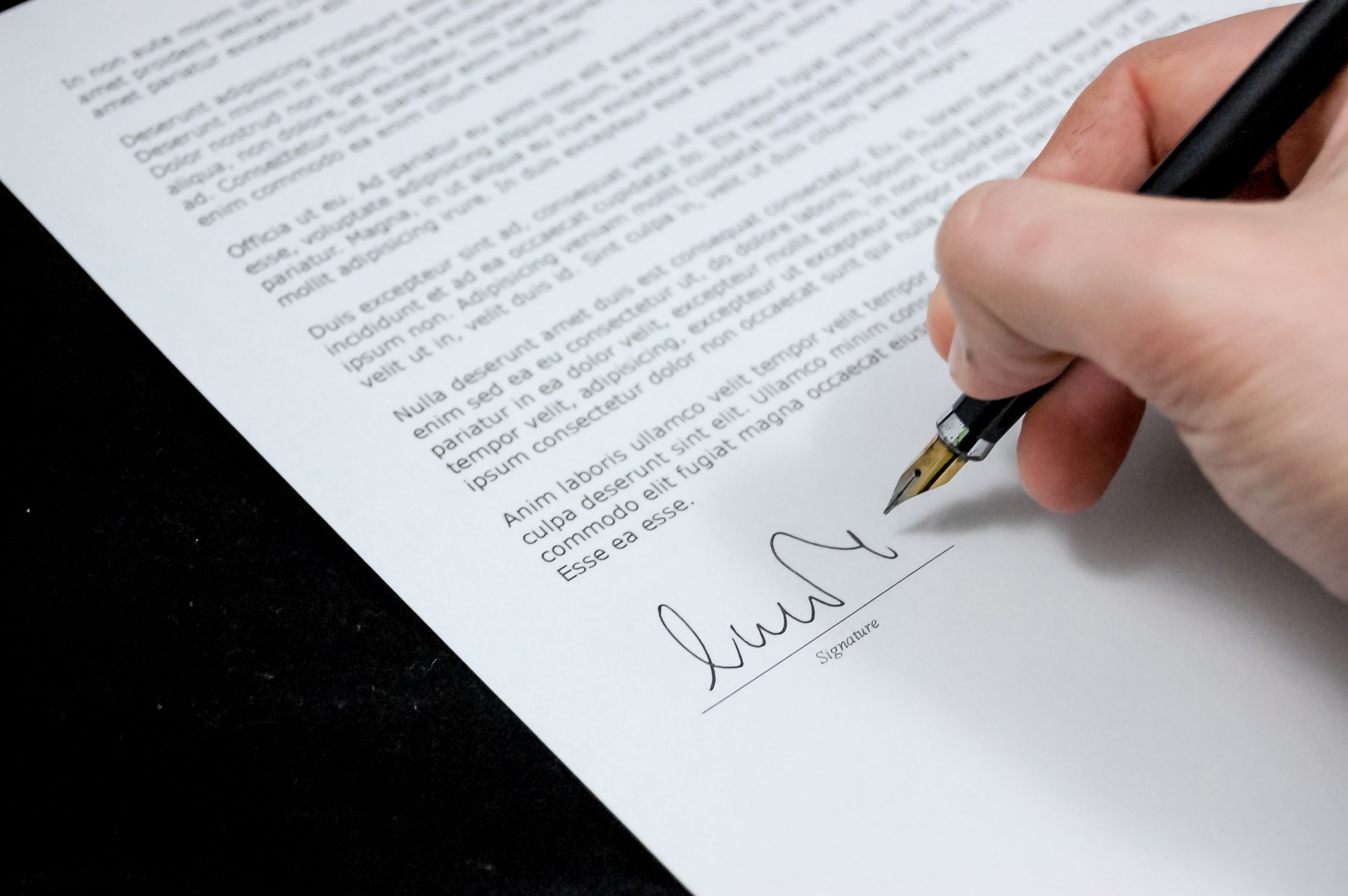In the realm of marriage, protecting one’s business assets is a matter that requires thoughtfulness and foresight. As the complexities of personal and professional life intertwine, safeguarding your business assets becomes integral to securing a stable future. Our article, titled “Prenup Business Assets Protection,” aims to provide you with invaluable insights and guidance on navigating the intricacies of prenuptial agreements. Delving into the importance of protecting your business interests, we shed light on the critical role a well-crafted prenuptial agreement can play in mitigating potential risks. With the goal of helping you make informed decisions, our article will equip you with the knowledge necessary to take the necessary steps to safeguard your business assets and ensure a secure future for yourself and your enterprise.
Understanding Prenuptial Agreements
Definition of a Prenuptial Agreement
A prenuptial agreement, also known as a prenup, is a legally binding contract entered into by a couple before their marriage or civil partnership. This agreement outlines the division of assets and liabilities in the event of divorce, separation, or the death of one of the spouses. While it is commonly associated with the distribution of personal assets, it is equally important for business owners to consider including provisions related to their business assets.
Purpose of a Prenuptial Agreement
The primary purpose of a prenuptial agreement is to provide certainty and clarity for both parties involved, ensuring a fair and equitable distribution of assets. In the case of business owners, a prenup can help protect their business interests by clearly defining which assets are considered separate or marital property, as well as establishing guidelines for the division of business assets and addressing potential financial obligations.
Importance of Prenuptial Agreements for Business Owners
Business owners face unique challenges when it comes to protecting their business assets during a divorce or separation. A prenuptial agreement can play a crucial role in safeguarding their business interests by providing a framework for the treatment of business assets. It helps minimize the risk of costly disputes and potential disruptions to the operations and growth of the business.
Identifying Business Assets
Different Types of Business Assets
Business assets can take various forms, such as real estate, equipment, inventory, intellectual property, goodwill, and business accounts. It is important to identify and categorize these assets accurately to ensure they are appropriately addressed in the prenuptial agreement.
Valuing Business Assets
Determining the value of business assets is a critical step in the prenup process. Valuation methods such as market value, book value, or cash flow analysis may be used depending on the nature of the business. Engaging the services of a qualified business appraiser can provide an objective assessment of the value of the business assets.
Determining Separate vs. Marital Property
One of the key considerations in a prenuptial agreement is distinguishing between separate and marital property. Separate property refers to assets owned by one spouse before the marriage or acquired during the marriage through inheritance or gift. Marital property, on the other hand, includes assets acquired during the course of the marriage. Clearly defining which assets are considered separate or marital is crucial to protecting business interests.

Benefits of Including Business Assets in a Prenup
Preserving Business Ownership
Including business assets in a prenuptial agreement helps preserve the ownership and control of the business in the event of a divorce or separation. By clearly defining the ownership percentages or designating one spouse as the sole owner of the business, the agreement safeguards the business from being subject to division or transfer.
Minimizing Future Disputes
Disputes over the distribution of business assets can be time-consuming, emotionally draining, and financially costly. By addressing the treatment of business assets in a prenup, potential conflicts and disagreements can be minimized. This allows both parties to have a clear understanding of their rights and obligations, reducing the likelihood of disputes arising in the future.
Protecting Business Growth and Success
A well-drafted prenuptial agreement can protect the future growth and success of a business by preventing the non-owner spouse from claiming a share in the business’s increased value during the marriage. This ensures that the business remains solely in the control of the owner spouse and can continue to thrive without the risk of interference or ownership disputes.
Key Considerations for Including Business Assets
Full Disclosure of Business Assets
When including business assets in a prenuptial agreement, it is crucial to provide full and accurate disclosure of all business assets and financial information. Failure to disclose these assets can lead to challenges in the enforcement of the agreement and potentially render it invalid.
Independent Legal Counsel for Both Parties
To ensure fairness and protect the rights of both parties, it is important for each spouse to have their independent legal counsel when negotiating and drafting the prenuptial agreement. This helps ensure that each party’s interests are represented and prevents any claims of coercion or lack of understanding of the agreement.
Negotiating Fair Terms and Conditions
The terms and conditions of a prenuptial agreement, including those related to business assets, should be negotiated in good faith. Both parties should have an opportunity to express their expectations and concerns and work together to reach a fair and balanced agreement that protects the interests of both spouses.

Potential Clauses to Protect Business Assets
Definition of Separate vs. Marital Property
Including a clear and concise definition of separate and marital property in the prenuptial agreement is critical. This helps establish the foundation for the treatment of business assets and avoids potential disputes over the ownership and division of these assets.
Business Valuation and Appraisal
Including provisions for the valuation and appraisal of business assets can help ensure a fair assessment of their worth. This protects business owners from potential undervaluation or overvaluation of their assets, which could impact their financial interests during a divorce or separation.
Spousal Support and Financial Provisions
Prenuptial agreements may also address spousal support, commonly known as alimony, and other financial provisions. By including provisions related to spousal support, such as the amount and duration, business owners can protect their financial stability and prevent potentially excessive financial obligations in the event of a divorce.
Enforcement and Validity of Prenuptial Agreements
Legal Requirements and Formalities
For a prenuptial agreement to be enforceable, it must meet certain legal requirements and formalities. These requirements may vary by jurisdiction but typically include the agreement being in writing, signed voluntarily by both parties, and executed with the presence of witnesses or notarization. Adhering to these legal formalities is essential to ensure the validity and enforceability of the agreement.
Voluntary and Fair Agreement
A prenuptial agreement must be entered into voluntarily by both parties without any coercion or duress. The agreement should also be fair and reasonable to ensure that it is not perceived as unconscionable or one-sided. Courts may scrutinize the terms of the agreement to ensure fairness, so it is crucial to consider the equitable distribution of assets when drafting the prenup.
Drafting and Review by Experienced Attorney
To ensure the legality and effectiveness of a prenuptial agreement, it is highly recommended to seek the assistance of an experienced family law attorney who specializes in prenuptial agreements. They can guide you through the drafting process, ensure compliance with applicable laws, and provide valuable advice to protect your business assets effectively.
Common Challenges and Pitfalls to Avoid
Lack of Full Disclosure
Failure to provide full and accurate disclosure of business assets can lead to serious consequences. If one party discovers undisclosed assets after the agreement is signed, they may challenge the validity of the agreement and seek to have it set aside. Full disclosure is crucial to maintaining the integrity and enforceability of the prenuptial agreement.
Unreasonable or Unfair Terms
A prenuptial agreement should be fair and reasonable to ensure its enforceability. Including terms that are perceived as unreasonable or one-sided may raise concerns during a legal challenge. It is important to consider the needs and interests of both parties when negotiating and drafting the terms of the agreement.
Invalid or Unenforceable Provisions
Certain provisions in a prenuptial agreement may be deemed invalid or unenforceable by a court if they violate public policy or legal requirements. It is essential to consult with an experienced attorney to ensure that the provisions in the agreement comply with the laws of the jurisdiction and are enforceable under relevant legal standards.
Role of Attorneys in Drafting Prenuptial Agreements
Benefits of Professional Legal Assistance
Engaging the services of an attorney when drafting a prenuptial agreement brings several benefits. Attorneys specializing in prenuptial agreements have the expertise and knowledge to craft a comprehensive and effective agreement that protects the interests of their clients. They provide valuable legal advice, guide the negotiation process, and ensure compliance with applicable laws.
Tailoring the Agreement to Individual Needs
Every individual and business is unique, which is why a one-size-fits-all approach to prenuptial agreements is inadequate. Attorneys work closely with their clients to understand their specific circumstances and goals, allowing them to tailor the agreement to address the individual needs and concerns of each party, including the protection of business assets.
Ensuring Compliance with Applicable Laws
Family law and contract laws vary by jurisdiction. Attorneys specializing in prenuptial agreements are well-versed in the legal requirements and formalities specific to each jurisdiction. They ensure that the agreement complies with these laws, making it more likely to be upheld and enforced in the event of a legal challenge.

When to Consider Reviewing or Updating a Prenup
Significant Changes in Business Ownership
Major changes in business ownership, such as the addition of partners, restructuring, or expansion, may warrant a review and potential update of the prenuptial agreement. This ensures that the agreement accurately reflects the current state of the business and provides appropriate provisions for the newly acquired assets or liabilities.
Marital or Financial Status Changes
Life circumstances can change significantly over time, and these changes may require a revision of the prenuptial agreement. Examples of such changes include the birth of children, a significant increase or decrease in income, or a change in marital status, such as separation or divorce. Regularly reviewing the agreement and updating it to reflect current circumstances is crucial to ensure its continued effectiveness.
Regular Review to Reflect Current Circumstances
Even in the absence of major changes, it is advisable to review a prenuptial agreement periodically to ensure that it remains relevant and addresses any changing needs or concerns. Regular reviews can help maintain the enforceability of the agreement and provide peace of mind for both parties involved.
Consulting with an Attorney for Prenup Preparation
Importance of Seeking Legal Advice
As the preparation of a prenuptial agreement involves legal complexity and potential long-term consequences, it is important to seek legal advice from an experienced attorney. They can guide you through the process, explain your rights and obligations, and ensure that your interests are protected in line with the applicable laws.
Choosing a Qualified Prenuptial Agreement Attorney
Selecting the right attorney to assist with the drafting of a prenuptial agreement is critical. Look for an attorney with a specialization in family law and substantial experience in drafting prenups, particularly those involving business assets. A qualified attorney will have the knowledge and expertise to navigate the complexities and intricacies specific to your situation.
Steps in the Prenup Preparation Process
The process of preparing a prenuptial agreement typically involves several steps. These may include:
-
Consultation: The attorney meets with each party separately or together to gather information and discuss their goals and concerns.
-
Disclosure of Assets: Both parties provide a complete and accurate disclosure of their assets, including business assets.
-
Negotiation: The attorney facilitates negotiations between the parties to establish the terms and conditions of the agreement.
-
Drafting: Based on the information and negotiations, the attorney drafts the prenuptial agreement customized to the specific needs of the couple.
-
Review and Revisions: Both parties review the draft agreement with their respective attorneys, suggest revisions, and ensure compliance with legal requirements.
-
Execution: Once both parties are satisfied with the agreement, it is signed in the presence of witnesses or notarized, as required by law.
Seeking professional legal assistance during each of these steps ensures that the prenuptial agreement is thorough, enforceable, and provides effective protection for business assets and other interests.
In conclusion, a well-drafted prenuptial agreement is essential for business owners to safeguard their business assets and protect their future financial stability. By understanding the purpose, benefits, and considerations involved in including business assets in a prenup, individuals can make informed decisions and seek legal assistance to navigate the complexities of this important legal document.